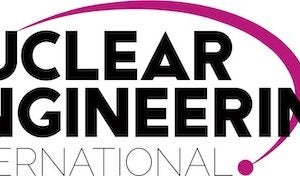A survey of global energy executives reveals widespread pessimism that interim 2030 net zero targets can be met and a lack of supportive policy and regulation is seen as a key culprit. Can anything be done to effect change?
It’s disappointing, but perhaps not really so surprising, that the inaugural Global Net Zero Jeopardy Report has found that the energy industry has grave doubts that net zero targets will be met. The report, from the Energy Industry Council (EIC), has found that only a little over 10% of energy industry leaders believe global targets can be achieved in time for the interim date of 2030. That, of course, is less than six years away and yet there still seems to be a yawning space to bridge given the recent analysis from International Energy Agency (IEA). This found that overall global energy sector emissions in fact rose last year, albeit at a slower rate than previously.
Although there is more optimism when it comes to 2050 – here some 45% of executives surveyed see the possibility of success – the overarching conclusion is that there is actually a growing gap between climate change ambition and the concrete actions that will make that ambition happen. The report, which is based on surveys and interviews with energy industry leaders, suggests a bleak global outlook among the industry itself.
Given this widespread pessimism, it doesn’t take long before respective national governments are broadly held responsible. Almost half of the respondents cite unclear and inconsistent government policies as obstacles and a whopping 87% of them hold governments primarily responsible for not meeting net zero targets. While the views on meeting the targets in their respective countries were marginally more optimistic, only 16% of respondents felt individual nations would be able to meet their own interim goals, although two thirds believe that their national 2050 goals are achievable.
Predictably, industry leaders urge both policy and regulatory reforms to get a firm grip on mitigating climate change. And, it certainly is fair to say that, for many nations, successive governments have seemingly been almost wilfully obstructive when it comes to developing a coherent long-term policy to support nuclear energy. Policy and regulation serve as the bedrock of any energy technology development and deployment and none more so than nuclear power. Without that in place, attracting the necessary investment, building robust supply chains, and the scale and experience needed to reduce costs becomes far more challenging if not impossible.
The EIC report reflects that reality with 61% of executives stressing the need for more investment and incentives as they point to the higher costs of the green transition and the importance of ensuring profitability. Again, almost half of the interviewees also call for stronger, more supportive regulatory frameworks to support further low-carbon developments and over a fifth pick up on supply chain and limitations in infrastructure as part of the reasons for the gap between current capabilities and the requirements for the energy sector to reach its net zero goal.
Given the dismal outlook from energy executives and the troubling data from the IEA, it’s clear that change is needed. How that change will take place remains opaque though when considering the mechanism that can inspire such a radical shift. Not unreasonably given progress to date, some participants in the survey believe that only a major catastrophe will deliver sufficient impetus to catalyse action. Many people would convincingly argue that just such a catastrophe is already happening. Others are more considered, calling for proactive and mandated government directives and international cooperation to foster a more unified approach to tackling the world’s principal challenge. For nuclear to meet its full potential contribution to addressing the clean energy transition, this is absolutely key. And failure to make that happen in a timely way? Well, that really would be major catastrophe.
By David Appleyard, Editor, Nuclear Engineering International





